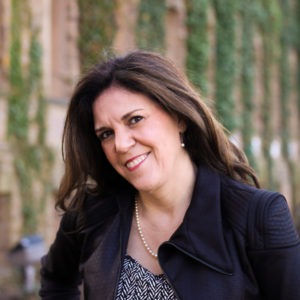
Margarita Mooney Clayton is an Associate Professor of Practical Theology at Princeton Theological Seminary, where she teaches classes such as philosophy of social science; aesthetics and education; Christianity and the liberal arts tradition, and resilience, vulnerability and suffering. She is the Founder and Executive Director of Scala Foundation, a nonprofit organization in Princeton, New Jersey, that works to offer meaning and purpose in education by restoring beauty and classical liberal arts education. Professor Mooney received her B.A. in Psychology from Yale University and her M.A. and Ph.D. in Sociology from Princeton University. She has also been on the faculty of Sociology at the University of North Carolina at Chapel Hill and Yale University and the Pepperdine School of Public Policy. She is the author of The Wounds of Beauty: Seven Dialogues on Art and Education (Cluny Media, 2022) and The Love of Learning: Seven Dialogues on the Liberal Arts (Cluny Media, 2021). She has written for publications that reach wide audiences both inside and outside academia such as Real Clear Policy, Scientific American, Chronicle of Higher Education, Comment, Plough, First Things, Hedgehog Review, National Catholic Register, and Church Life Journal. Much of her work can be found at margaritamooneyclayton.com.
| Cookie | Duration | Description |
|---|---|---|
| cookielawinfo-checkbox-analytics | 11 months | This cookie is set by GDPR Cookie Consent plugin. The cookie is used to store the user consent for the cookies in the category "Analytics". |
| cookielawinfo-checkbox-functional | 11 months | The cookie is set by GDPR cookie consent to record the user consent for the cookies in the category "Functional". |
| cookielawinfo-checkbox-necessary | 11 months | This cookie is set by GDPR Cookie Consent plugin. The cookies is used to store the user consent for the cookies in the category "Necessary". |
| cookielawinfo-checkbox-others | 11 months | This cookie is set by GDPR Cookie Consent plugin. The cookie is used to store the user consent for the cookies in the category "Other. |
| cookielawinfo-checkbox-performance | 11 months | This cookie is set by GDPR Cookie Consent plugin. The cookie is used to store the user consent for the cookies in the category "Performance". |
| viewed_cookie_policy | 11 months | The cookie is set by the GDPR Cookie Consent plugin and is used to store whether or not user has consented to the use of cookies. It does not store any personal data. |